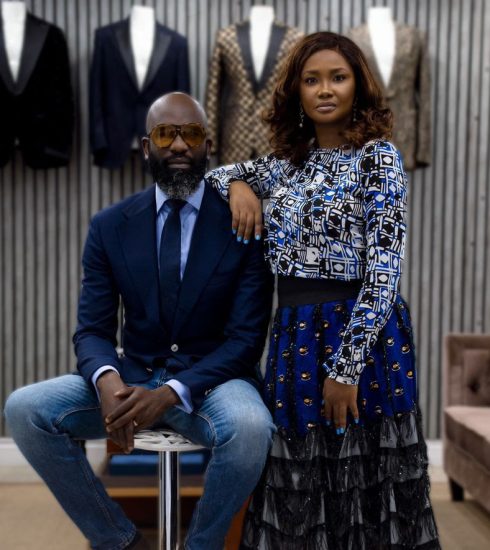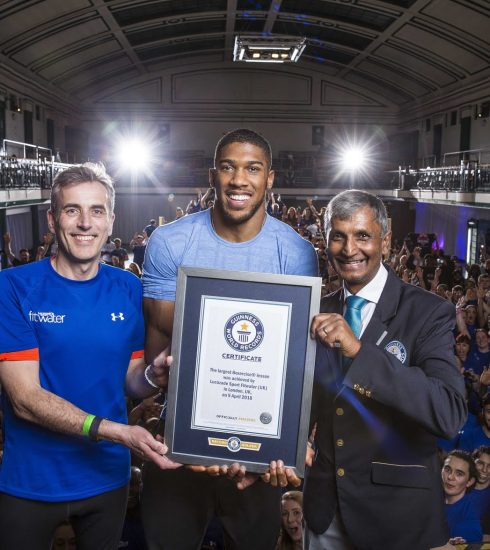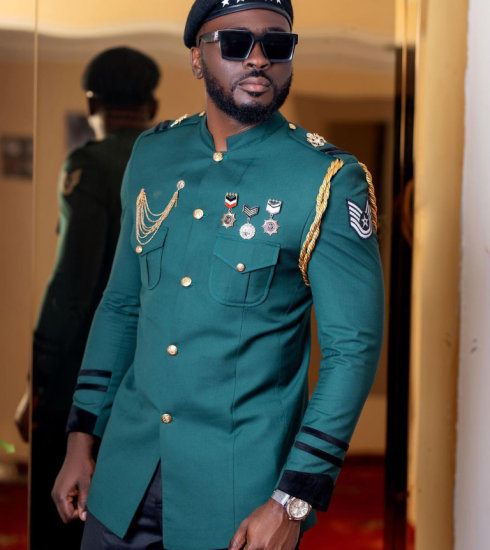Christmas Cloth, Good Tidings
Throughout the calendar year, most people look forward to one season, Christmas. Growing up, not a lot of holidays trump this one. Before we could even tie our own shoelaces, we had our first encounter with Santa Claus, or a more culturally appropriate name, ‘Father Christmas.’
Now, this man in a red suit with a protruding belly—for some reason, he has a beer belly looking like he is in his second trimester—is one we don’t see very often. We only got to see him on Christmas when he came bearing gifts. As kids, this was one of the best feelings ever, and only one thing trumped it—dressing the part on the big day.
It doesn’t matter what background we come from; our parents work twice as hard to ensure that we are trapped in that Christmas fairytale for as long as our innocence remains through our childhood. And because the importance of looking prim and proper on the day is not lost on them, Christmas cloth became a silent obligation many of them take on to make us feel special.
Whether you are going to a recreational park to sit on Father Christmas’s lap or on your way to church to hear a sermon about the reason for the season, Jesus Christ, Christmas cloth has always been a significant fixture in Nigerian festivities.
Remember how you used to feel. Alit by the smell of new fancy shoes, the readymade gown in a transparent synthetic bag hung up in the wardrobe, the
new hairdo (for girls, parking gel was almost a nationally recommended hairstyle), the plastic sunglasses that completed whatever look we had imagined in our little minds.
These distant relatives would come to visit and bless our promise cards afterwards, the living room decor that didn’t take a lot of effort to assemble, the Christmas light that is typically accompanied by a serenade of soothing Christmas song instrumentals, the usually dry but really relaxing almost-harmattan weather, and how can we even forget the chicken in the kitchen? The fowl we had slaughtered the night before, putting hands together in the kitchen to pluck out its feathers, strongly believing the superstition that the more you gossip while at it, the faster its feathers—a dead and almost skinned poultry—keep growing back.
Christmas was not just a day; it was a feeling, an experience that evokes good tidings, one that unites the family regardless of how dysfunctional it might have been for the past 11 months. I remember my mum constantly rebuking everyone who dares to rechristen the season’ X-mas,’ enunciating clearly that the reason for the season must never be replaced with an ‘X,’ basically an
unknown. It wasn’t until I grew older I fully understood the significance of what she was trying to say, seeing how the capitalist western world has attempted to commercialise the holiday over the years, rebranding it to strip it of its essence.
Christmas has always been about family. And although more Nigerian
families have witnessed systemic disenfranchisement thanks to the mass
emigration that has seen loved ones grow apart, continents away from each
other, we can at least acknowledge the primary purpose the season seeks to
achieve: an understanding of the birth of Jesus in a manger, surrounded by
family and loved ones—the three wise men who came bearing gifts—wrapped
in the first ever Christmas cloth as He, a newborn, spreads good tidings all
across the world.
Self-identifies as a middle child between millennials and the gen Z, began writing as a 14 year-old. Born and raised in Lagos where he would go on to obtain a degree in the University of Lagos, he mainly draws inspiration from societal issues and the ills within. His "live and let live" mantra shapes his thought process as he writes about lifestyle from a place of empathy and emotional intelligence. When he is not writing, he is very invested in football and sociopolitical commentary on social media.






